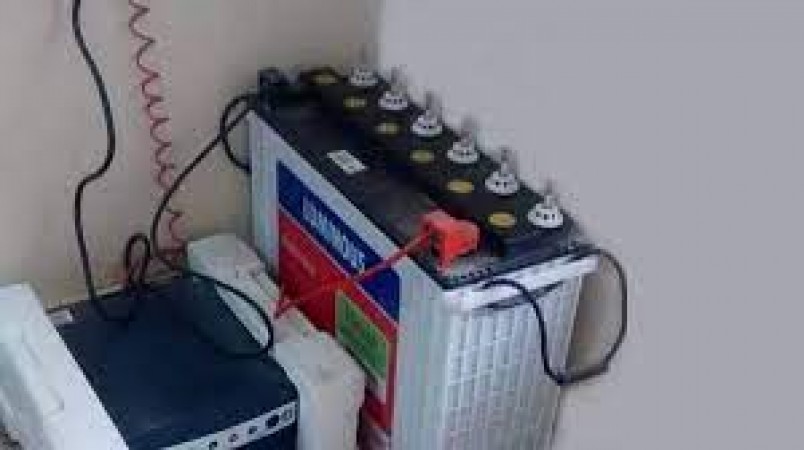
In the world of electrical appliances, inverters play a pivotal role in ensuring a seamless power supply, especially during those unexpected blackouts. Have you ever wondered why these essential devices are often installed outdoors, rather than finding a cozy spot inside your home? Let's delve into the intricacies and demystify the reasons behind this outdoor inclination.
Before we uncover the rationale behind outdoor installations, let's briefly grasp the primary function of an inverter. In simple terms, an inverter transforms direct current (DC) into alternating current (AC), making it an indispensable component for powering your household appliances.
One of the key reasons for placing inverters outdoors is safety. During the DC to AC conversion process, inverters generate heat. Placing them outside allows for better ventilation and minimizes the risk of overheating, reducing the probability of electrical mishaps.
Heat dissipation is crucial for the longevity and optimal performance of inverters. Placing them outdoors ensures natural airflow, preventing the accumulation of heat that could potentially lead to malfunctions or even pose a fire hazard.
Outdoor installations also take into account the resilience of inverters against various weather conditions. These devices are designed to withstand rain, snow, and sunlight. Placing them outdoors shields them from the elements, enhancing their durability.
Inverters can generate a certain level of noise during operation. By siting them outdoors, any operational sounds are kept away from the living spaces, contributing to a quieter indoor environment.
From an aesthetic standpoint, inverters are not the most visually appealing devices. Installing them outdoors helps maintain the visual harmony of your living spaces while optimizing indoor areas for more aesthetically pleasing elements.
Placing inverters outside facilitates easier access for maintenance and repairs. Technicians can swiftly address issues without causing disruptions to your daily activities, ensuring a prompt resolution to any glitches.
Some household appliances, like refrigerators, require adequate ventilation for efficient operation. Placing inverters outdoors eliminates potential conflicts in ventilation needs, allowing each device to function optimally without interference.
The outdoor placement of inverters aligns with safety regulations and standards. Adhering to these guidelines ensures that your electrical setup is in compliance, reducing the risk of accidents or non-compliance penalties.
In the case of solar inverters, outdoor installation is imperative to harness the power of the sun effectively. Placing them outdoors ensures unobstructed access to sunlight, maximizing their efficiency in converting solar energy.
To maintain the aesthetic appeal of your outdoor spaces, inverters are often discreetly installed or housed in enclosures, minimizing their visual impact on your property.
Outdoor installations provide an added layer of protection against electrical surges. In case of lightning or power fluctuations, outdoor placement reduces the risk of damage to the inverter and connected devices.
Outdoor placement allows for easy scalability. If you plan to expand your solar power system or add more inverters, outdoor installations provide the flexibility to accommodate future enhancements without major structural modifications.
Local building codes and regulations may mandate the outdoor installation of inverters. Complying with these regulations is essential to ensure the safety of your electrical system and maintain the integrity of your property.
From an environmental perspective, outdoor installations align with sustainability goals. Properly sited inverters contribute to energy efficiency by optimizing their performance in natural conditions.
Outdoor placement enhances the overall performance of inverters. By allowing them to operate in ambient temperatures, outdoor installations contribute to the efficiency and reliability of these devices.
For homes equipped with solar panels, outdoor inverter placement is crucial for seamless integration. Placing inverters close to solar arrays minimizes energy loss, ensuring that the electricity generated is efficiently converted and utilized.
Placing inverters outdoors mitigates any operational noise they may generate. This outdoor positioning ensures a quieter indoor environment, contributing to a more comfortable living space.
Inverters are crafted with weather-resistant designs to withstand outdoor conditions. This robust construction ensures their durability, minimizing the need for frequent replacements or repairs.
Outdoor installations facilitate easy access for maintenance and repairs. Technicians can quickly address issues without disrupting your daily activities, ensuring a prompt resolution to any glitches. In conclusion, the decision to install inverters outdoors is a multifaceted one, considering safety, efficiency, and practicality. By embracing outdoor installations, homeowners can ensure the optimal performance and longevity of these crucial devices, safeguarding their electrical systems and enjoying uninterrupted power supply.
Are you also going to become a bride, then these beauty tips will be useful
If you use hair dryer in winter then know its advantages as well as disadvantages
These people should not eat eggs for breakfast even by mistake, it may cause problems